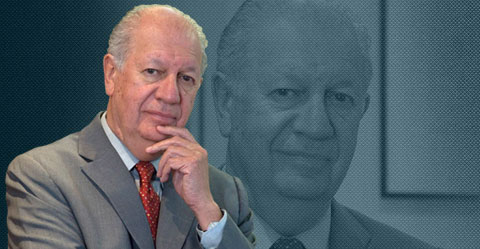
Photo Credit: Julien Lagarde via Compfight cc
In June 2011, the group Democracia Ya (Democracy Now) used social networks to gather over a million people in plazas across Spain – they became known as the Indignados – to protest against public policies that were being implemented in the face of the economic crisis. That same year, over 300 thousand young Chileans came out onto the streets for several months in an emphatic campaign for free, quality education.
Both the indignados and the student protests are expressions of the epic that is occurring among young people in the West as they question various different aspects of the elites of political and economic power. But who are these young people? In Latin America they are the sons and daughters of the emerging middle class who, after achieving a certain quality of life, are criticizing the reigning social order and the way that institutions resolve problems. In Europe, in contrast, they are the result of the implementation of austerity policies that have been political parties’, conservative and progressive alike, only response to the crisis, allowing the market to define the path of the economy without, for example, addressing the issue of very high youth unemployment (close to 22%).
What do they have in common? They are digital natives of a world in which 60% of young people get their news from the internet rather than traditional channels such as television or radio. The internet is a technological platform that allows young people to organize movements and demonstrations. With social networks they cease to be spectators and become generators of content, debating the ideas of the future, coordinating actions to occupy spaces of power and intervening on-line in political decisions. They will also inherit and thus have to face complex issues such as environmental disaster, drug trafficking and increasing social inequality but now they will have to do it from a global perspective. They know that responsibility for these problems transcends national borders of countries that, as powerful as they may be, cannot solve them unilaterally, problems that need to be addressed with a global convergence of political will.
In this context the pressure for change is very great and urgent. At the heart of all these mobilizations is a profound questioning of democracy as we know it today. Rigid institutions that use practices and political processes that are unable to respond to the demands of the people, plus the incredulity of citizens in the face of their methods of control, contribute to the loss of legitimacy of the system and provoke a deep sensation of frustration with a world where power is being abused.
This democratic reformulation is becoming an epic story of young people taking part in emerging, collective and massive rituals in which new forms of participation and thought are being sought. There is still time for progressive politicians to recognize that their institutions and their processes are in danger of losing their legitimacy and thus to consider new ideas and actions. However, the question arises: are these forces ready to change their ways and win over young people?
Leave a comment



